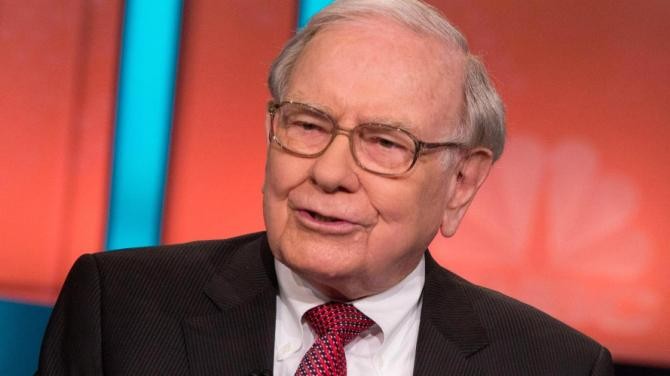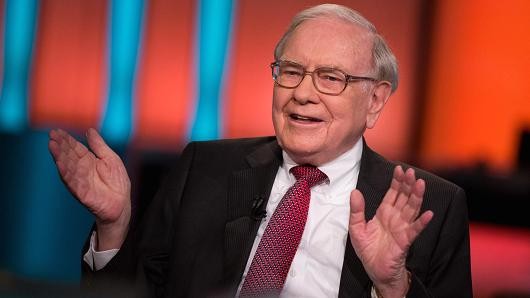Buffett s Biggest Missteps
Post on: 28 Апрель, 2015 No Comment

It stands to reason that anybody who has been an investor and CEO for many decades is going to have his or her share of head-slapping blunders. When it comes to Warren Buffett, CEO and Chairman of Berkshire Hathaway (NYSE:BRK.A ), everything is magnified. Not only is he among the richest Americans, he’s also one of the best-known investors and executives. There are arguably more articles, columns, and books devoted to poring over his performance than anyone else in a similar position.
Consequently, his blunders get more than their ordinary share of scrutiny as well. While it’s likely that there are plenty of people who resent his success and reputation, and enjoy discussions of his blunders as a way of taking him down a peg, others look to learn valuable lessons in the hope of avoiding their own mistakes. (For more on Warren Buffett’s logic, see Think Like Warren Buffett . )
Berkshire Itself
There’s a solid argument to the idea that one of Buffett’s most fundamental moves was one of his largest missteps. Buying Berkshire Hathaway, a textile company, in the 1960s gave Buffett a cash-hungry, obsolete business that was in an inexorable slide towards irrelevance. Perhaps even worse, Buffett has suggested that part of his decision to buy was driven by emotion (specifically anger at Seabury Stanton for undercutting him on a tender offer).
Buffett himself has talked about the opportunity cost of buying Berkshire Hathaway potentially being in the hundreds of billions of dollars and that he would have been considerably better off buying up insurance businesses with that cash. (To read more on Buffett’s moves, check out Warren Buffett’s Bear Market Maneuvers )
Airlines Have Been Nothing but Trouble
Buffett’s involvement with USAir (now US Airways (NYSE:LCC )) is another of his own oft-cited major missteps. Buffett actually made a solid profit from his holdings of the USAir’s preferred stock (due largely to the dividends ), but it was a rocky ride and Buffett would have done better simply reinvesting in his own insurance operations. Like Berkshire Hathaway itself, USAir was a member of a fading industry, and one that consumed cash at a prodigious rate.
Apparently the USAir lesson did not fully sink in, as the company acquired NetJets lock stock and barrel in 1998 (around the time it was disposing of the USAir stake). Not only did two economic downturns batter the market for private/charter jet travel, but once again this is a business with a large appetite for capital and a history of irrational competition. Though NetJets finally earned a profit in 2010, the investment has been a disappointment on the whole and a near-disaster if a market-rate cost of capital were assigned to this subsidiary. (For more on the airline industry, see Is That Airline Ready For Lift-Off? )
Trusting the Wrong People
One need only look at the story of Salomon Brothers to see that the questionable ethics of investment banks in the recent housing crisis was hardly a new development. Buffett got involved with Salomon for reasons not all that radically different than his investment in Goldman Sachs (NYSE:GS ) during the credit crisis — Salomon needed help to stay independent (in this case, fending off a potential takeover) and Berkshire Hathaway stood to collect a handsome return on the convertible preferreds it was buying.
Unfortunately, Salomon turned into a complete mess as the company submitted false bids to the Treasury in bond auctions and nearly went out of business as a result. In fact, the company probably would have gone away had Buffett not directly intervened and taken control. And yet, remember the words of Buffett when he invested in 1987 — What we do have a strong feeling about is the ability and integrity of John Gutfreund, CEO of Salomon Inc. Charlie and I like, admire and trust John.

This wasn’t the first or last time a lapse in judgment led to a questionable outcome. The actions of managers at General Re led to government probes, settlements with the Department of Justice and SEC, payouts to AIG shareholders and criminal charges against some of these executives. In simple terms, General Re helped AIG conduct a large-scale fraud through dodgy reinsurance deals that allowed AIG to look stronger than it really was. According to authorities, Buffett was not personally involved and GenRe did cooperate with the investigation, but it was a black mark with very little moral ambiguity. All of that under the watch of CEO Joseph Brandon; another executive that Buffett thought enough of that he was widely seen as a potential successor.
Buffett also apparently seriously misjudged the health of the housing market and the roles that several portfolio companies were playing. While it is entirely possible that the U.S. Congress would have called Buffett to testify on the housing bubble no matter what, his large ownership of Moody’s (NYSE:MCO ) proved to be an embarrassment. During those hearings, Buffett was forced to admit to a surprising level of ignorance about the frailties of the housing market and the questionable ethics exercised by bond-rating firms like Moody’s. That stands in sharp contrast to his pronouncements of how he won’t invest in a business he does not understand thoroughly and that does not reflect his ethics; much of the same could also be said for his investment in Wells Fargo (NYSE:WFC ) and its questionable lending practices throughout the bubble. As in the case of General Re, these mistakes have had some impact on Berkshire’s financial performance, but they have also dimmed some of the aura around Buffett as an investor and made investors question whether he really understands his investments to the extent he claims.
Most recently, NetJets has come around to embarrass Berkshire Hathaway in a less expected fashion. Former head of NetJets David Sokol was apparently buying shares of Lubrizol (NYSE:LZ ) while promoting its prospects as a potential acquisition to Buffett. Whether or not this met a legal standard of insider trading, it clearly looked self-serving and brought some measure of disgrace and embarrassment to Berkshire Hathaway — something that Buffett himself has said is more or less unforgivable.
Then again, that was not the first controversy for Sokol. Although he is credited with turning around the fortunes of NetJets in 2010, he was apparently not well-liked by employees. Outside fixers are seldom loved, but there was a surprising amount of sniping about Sokol’s approach and he lashed out in an email that was later leaked publicly. (to read more on David Sokol, read David Sokol: Buffett’s Former Right-Hand Man .)
The Bottom Line
It is easy to get carried away counting the mistakes, questionable decisions and embarrassing blunders that Warren Buffett has made over the decades. It should be kept in mind, though, that he is a billionaire many times over and that strongly argues that for whatever mistakes he has made, they are tempered by doing a lot of things right. While Buffett, like every one of us, sometimes repeats prior mistakes, it is never too late to learn from them and try to avoid them in the future. (For information about Warren Buffett’s big wins, see Warren Buffett’s Best Buys )














